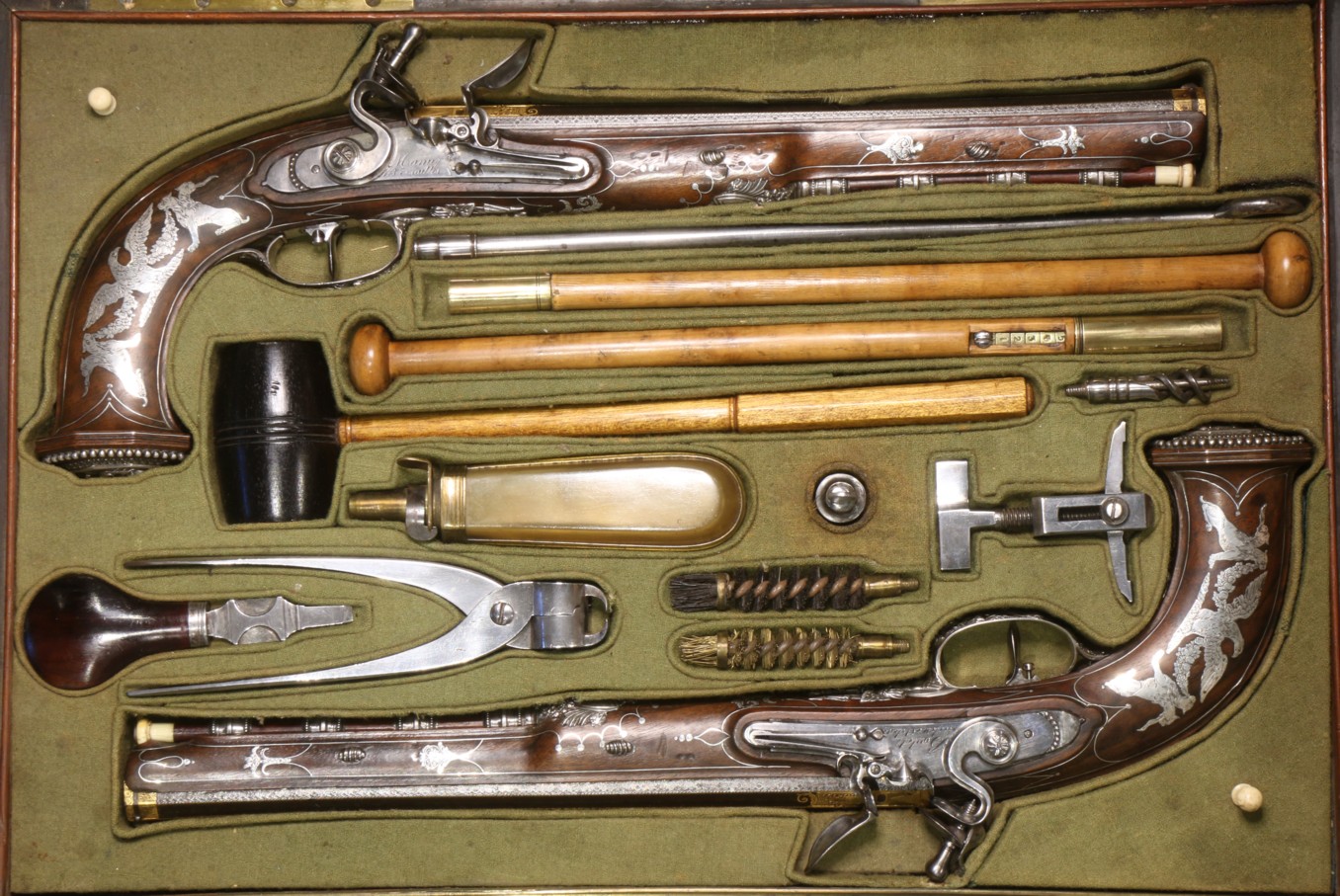
Nicolas Noël BOUTET

PROPERTY
FROM THE DESCENDANT FAMILY OF DON JOSÉ DE LA SERNA, CONDE DE LOS ANDRES, VICEROY
OF PERU (1770-1832).
A FINE
AND RARE CASED PAIR OF 28 BORE FRENCH SILVER-MOUNTED FLINTLOCK PISTOLS OF
PRESENTATION QUALITY BY BOUTET, DIRECTEUR ARTISTE, MANUFACTURE A VERSAILLES,
CIRCA 1802
With
lightly swamped octagonal sighted multi-groove rifled barrels decorated along
their length with a finely matted pattern sown with minute stars.
Signed
within a lozenge shaped framework of gilt pellets, decorated in gold with bands
filled with contrasting matted and plain triangular panels at the muzzle.
The flats
bordered by gilt ropework, and a shaped panel filled with a garland surmounted
by scrolls and foliage over the breech (the barrels previously blued and now
oxidised brown).
Fitted
with standing back-sight and struck with three gold-lined marks over the breech,
in three shaped recesses the letters 'NB', 'LC' and 'BC' (the first two Neue
Støckel 95 and 3741 respectively).
Stamped
with the letters 'DB' between a pair of fronds beneath, platinum-lined vents
over gold (an early working modification).
Engraved
burnished steel tangs decorated with swags, fronds and foliage.
Signed
locks with fluted borders, formed with stepped tails bordered by a beadwork
frame, fitted with detents, matching cocks, set triggers.
Figured
walnut full stocks, inlaid with engraved silver wire, pellets and panels
decorated with neoclassical foliage within a linear framework over the
fore-ends, a shell pattern about the rear ramrod-pipes.
Characteristic butts inlaid on each face with an Imperial eagle dividing a pair
monstrous hounds based on Orthrus, breathing fire from one mouth and clenching a
garland of flowers in the other all within a matching linear frame.
The
spines inset with a long shaped silver panel decorated with foliage.
Full
silver mounts cast and chased in low relief, comprising trigger-guards with
finials formed as a neo-classical trophy-of-arms and with the Nemean lion's pelt
about a club on the bows.
Butts
inset with a crowned classical helm bordered by foliage within a framework of
rounded nails.
Rear
ramrod-pipe formed of a chequered shield and a garland of flowers all impaled by
a neo-classical sword, three further moulded ramrod-pipes decorated with
delicate beadwork on the high points
Engraved
silver side nail washers decorated with flowers enclosed within a linear frame
of silver wire, engraved burnished steel trigger-plates, knurled steel barrel
bolts, and original ramrods.
In an
early brass-bound rosewood veneered fitted case lined in green baize (the case a
very early association, the lining faded, areas of wear), the lid with vacant
shield-shaped escutcheon, fitted with a pair of flush-fitting carrying handles
on each side, complete with a number of contemporary accessories including
brass-mounted horn flask, steel mainspring clamp and bullet mould, turnscrew,
and cleaning rods.
26.8 cm;
10 ½ in barrels Provenance Don Jose de la Serna, Conde de los Andres, Viceroy of
Peru by descent to Eugenia de la Rocha y Fontecilla, Marquesa de Angulo great
grandmother of the present owner Don José de La Serna, Conde de los Andres,
played a prominent role in the War of Spanish Independence where his performance
against the French earned him a promotion to lieutenant general. In 1815 he was
sent to the American colonies as commanding general of the army of Upper Peru
where he was appointed Viceroy of Peru in 1821, a post he held until 1824. The
correspondence files of the Ministry for Foreign Relations includes an entry for
a pair of embellished Versailles pistols from the First Consul in 1802 to
Mariano Luis d'Urquijo, Spanish first minister for Foreign Affairs at the
beginning of the 19th century. The d'Urquijo pair remain unknown and it has been
suggested that they might be the present pair, having been later presented by
the Spanish First Minister to the Viceroy of Peru. This theory is strengthened
by the following entry for a number of pieces for the Ministry in the Annuaire
of the Versailles Manufactory for AN X, or 1802:
Ministre du Relations Extérieur Pistolets gros calibre a secret, arg. gravé riche, fr. 2.400 Nécess. acajou, pistol. arg. gravé, chaînette, roulet. damasq., fr. 1.200 Nécess. acajou, pistolets de combat, argent, cis. 1er modèle, riche, placage arg. damasq., bassinets or, fr. 3.000 Service: 2 fusils doubles forestiers
A related
pair of pistols, with similarly decorated barrels, trigger-guards and
ramrod-pipes, are preserved in the Wallace Collection, nos. A1219 and A1220. The
number of ramrod-pipes on both pairs of pistols is unusual for Boutet. The use
of platinum is probably a very early modification, perhaps added at the same
time as the pistols were fitted into the present case. The anti-corrosion
properties of platinum were well known by 1800 and it was used to line shotgun
barrels by Jean LePage circa 1819. Nicolas-Noël Boutet (1761-1833) the
distinguished maker of armes de luxe inherited the position of gunmaker to Louis
XIV from his father-in-law, Pierre de Sainte (active 1747-88). In 1792 he became
technical Director at the new Versailles Manufactory and in 1800 rose to
Directeur Artiste with overall control. He held this position until the closure
of the manufactory in 1818. Boutet died fifteen years later in poverty, his
career having survived six French Political regimes.
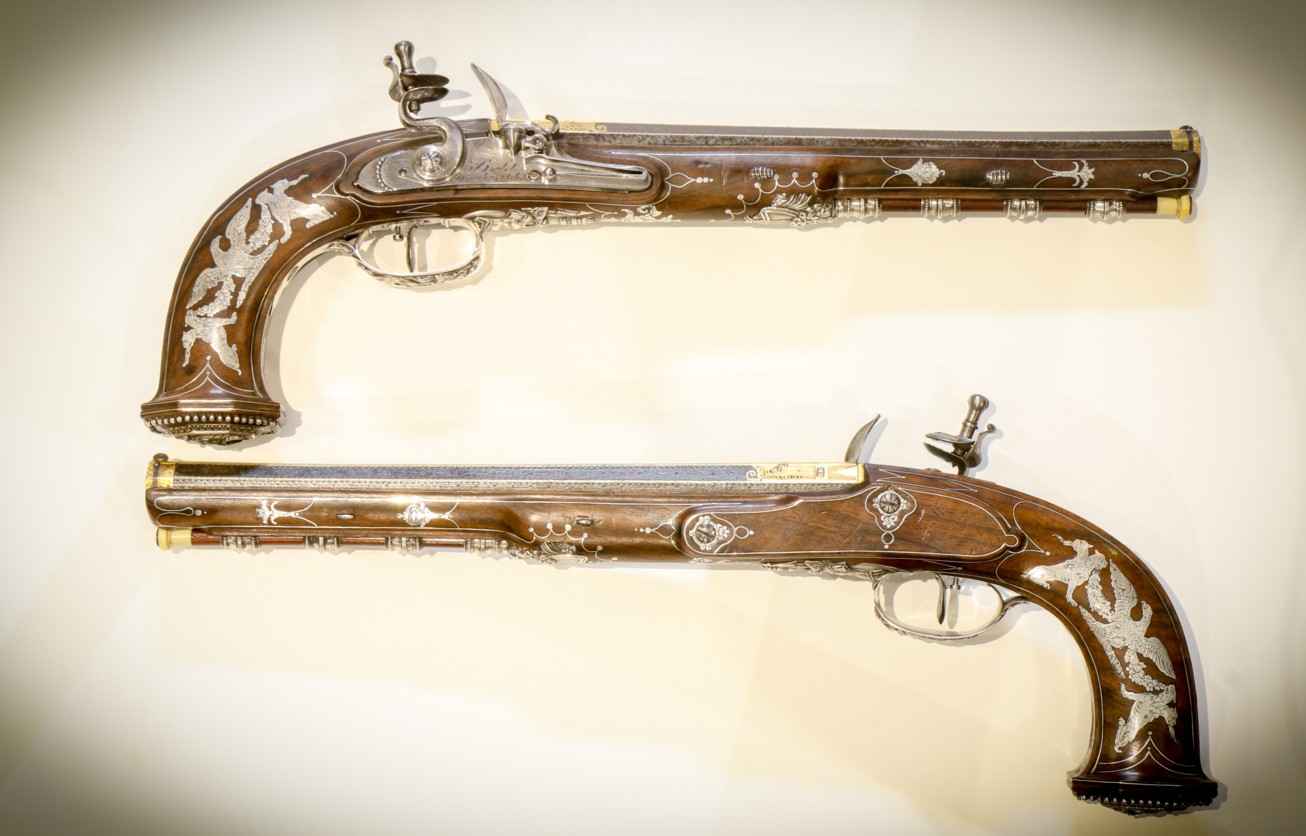
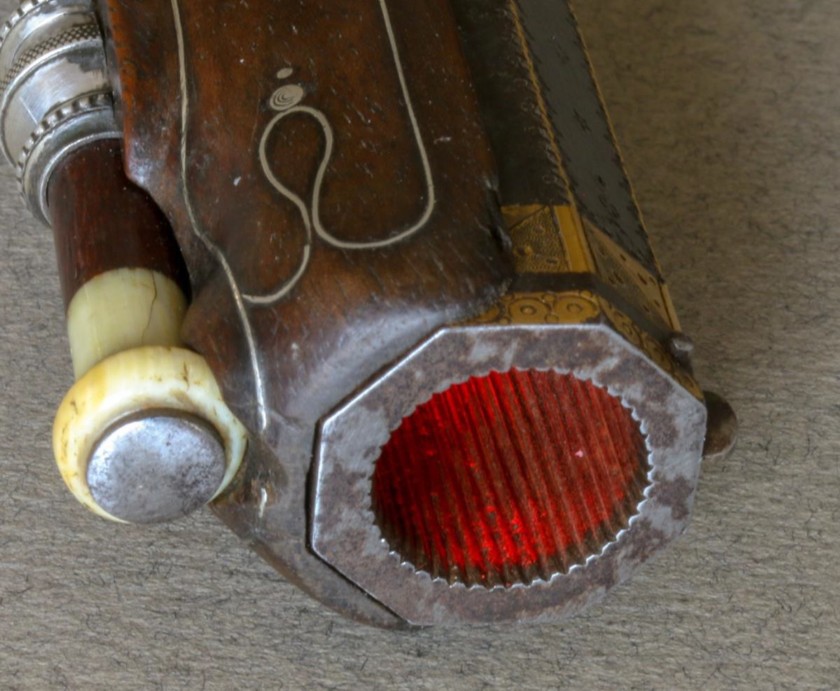
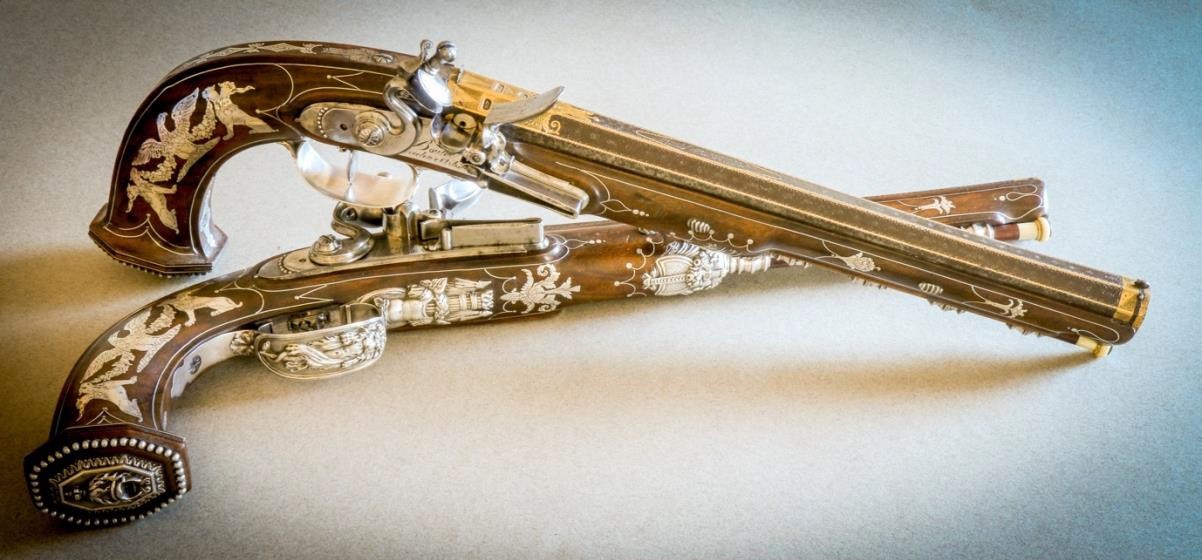
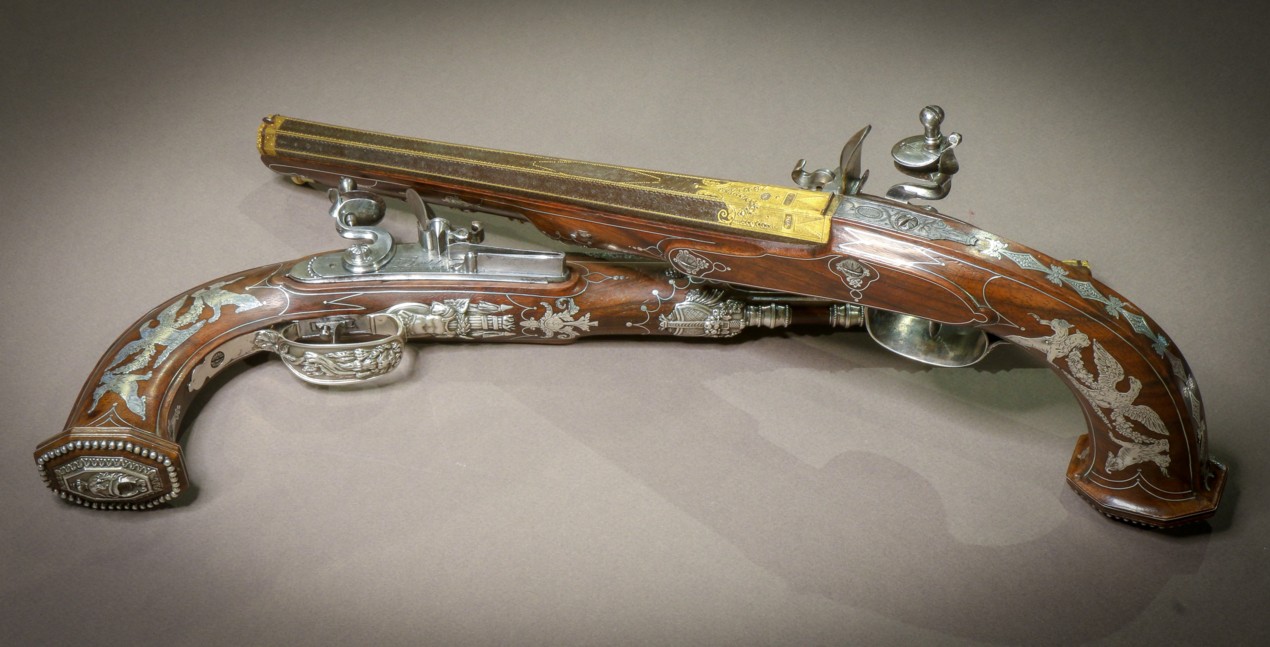

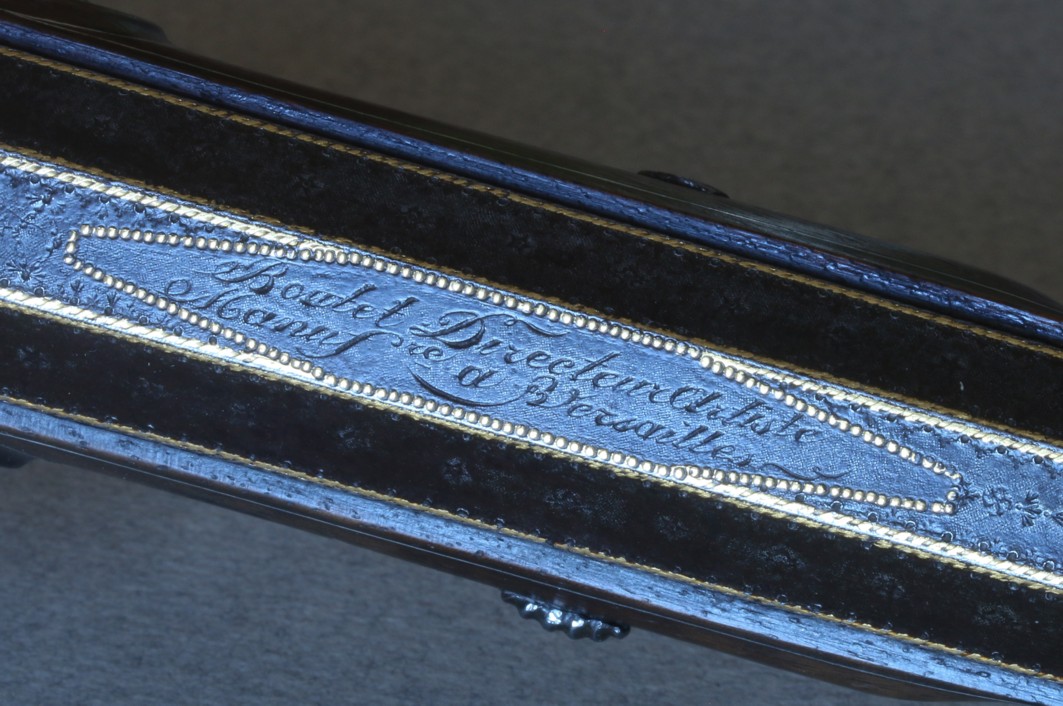
Signed on
the top flat “Boutet Directeur Artiste Manufre a Versailles”.
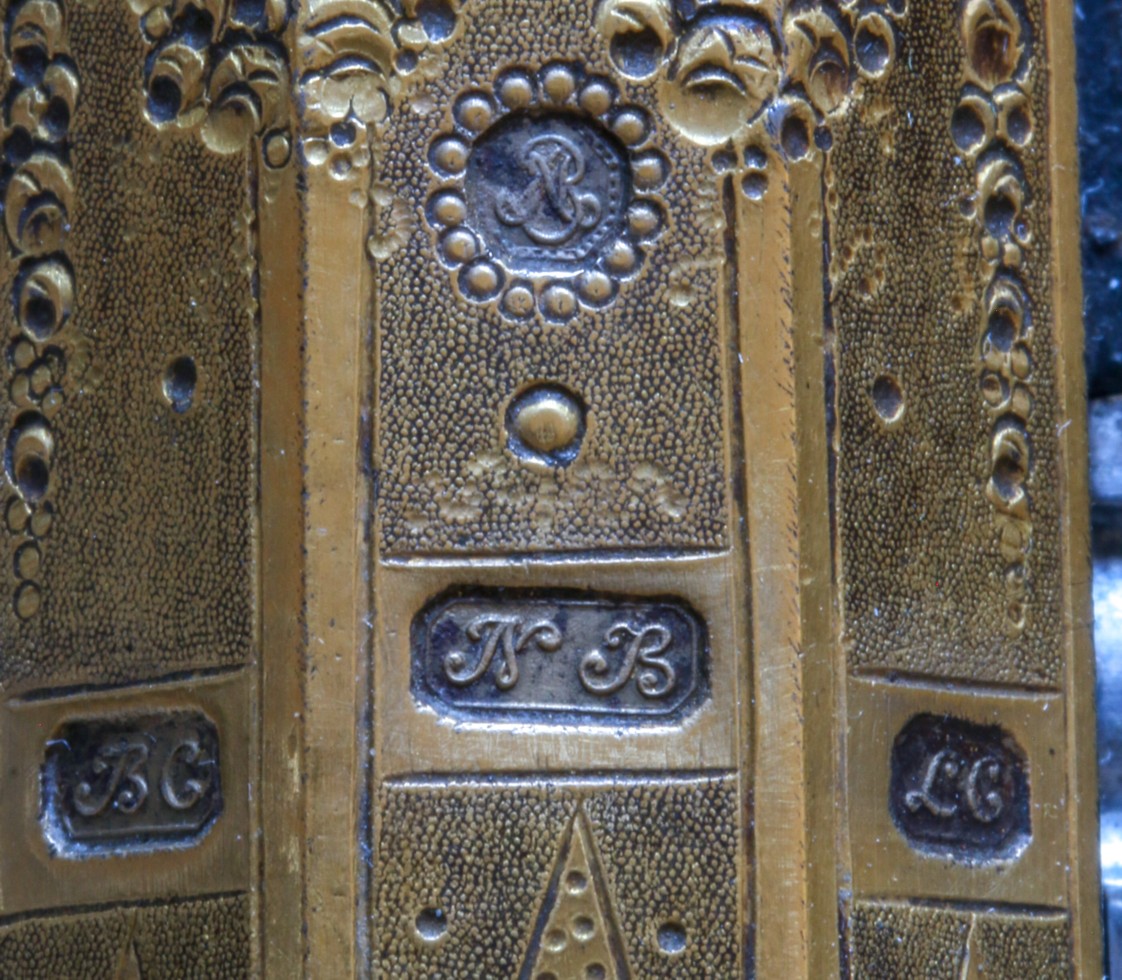
Top punch
– intertwined “NB” for Nicolas Boutet. (Stockel 97)
Left
Punch – unrecorded.
Middle
punch – “NB” for Nicolas Boutet (Stockel 95)
Right
punch – “LC” for barrel-maker Jean Nicolas Le Clerc (Stockel 3741)
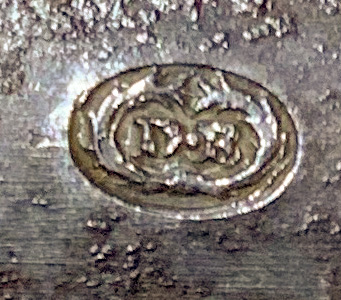
Underneath barrel punch – “DB” for Daniel Bouyssavy Director of Manufacture
(Inspector)
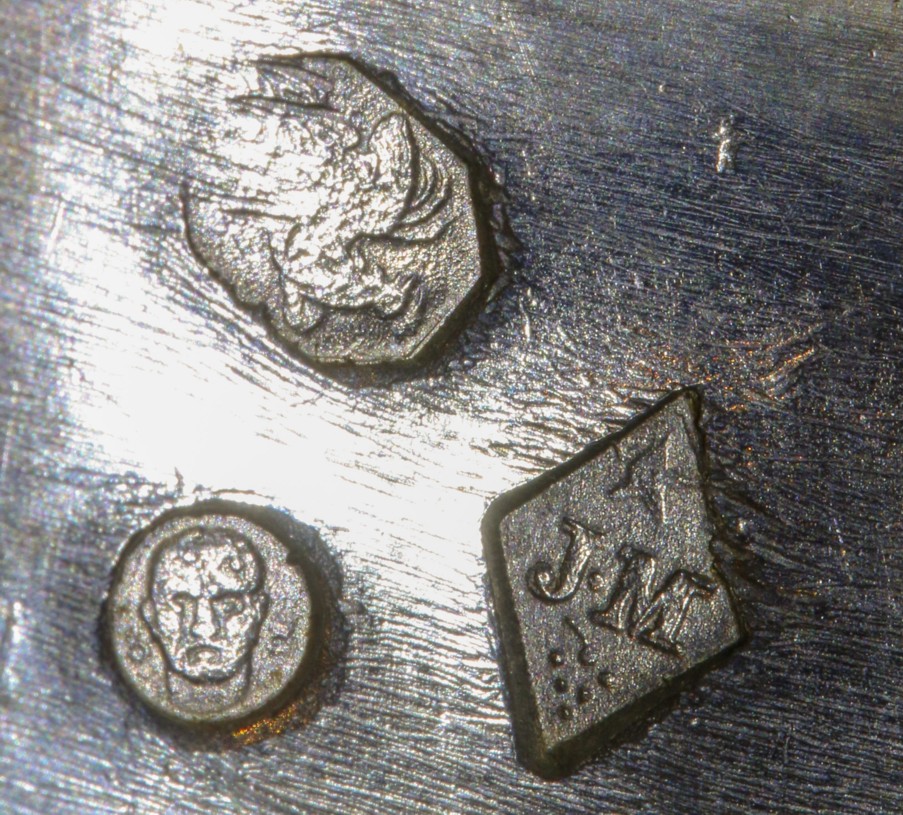
The above
punches are on the silver mounts.
Makers
name (unrecorded) “JM” in vertical diamond with star above and bunch of grapes
below.
Head with
“85” - guarantee mark for Paris.
Rooster –
hallmark for 950/1000 silver.
Michael